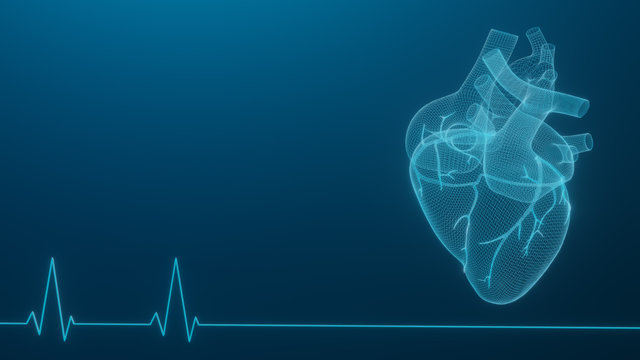The Role of Cardiology in Precautionary Health and Wellness Services
Cardiology is increasingly identified for its crucial duty in preventative wellness and wellness solutions. By stressing aggressive strategies, cardiologists intend to reduce the occurrence of heart diseases. This technique includes danger evaluations, lifestyle modifications, and regular screenings. With these initiatives, patients are encouraged to take control of their heart wellness. The integration of technology and partnership with other medical care companies raises important inquiries regarding the future of preventative care. What might this evolution require?

Comprehending Preventative Cardiology
Comprehending preventative cardiology entails recognizing its necessary role in reducing heart disease risk with proactive steps. This branch of medication stresses the value of way of living adjustments, consisting of exercise, diet, and stress and anxiety monitoring, to stop heart-related concerns before they arise. It advocates for routine health and wellness testings and education to encourage people in making informed health and wellness choices.Preventative cardiology additionally includes the recognition of danger elements such as hypertension, diabetes, and high cholesterol, advising individuals to embrace healthier behaviors - Cardiology. By concentrating on avoidance rather than reaction, this approach not only boosts private health and wellness end results but additionally eases the total worry on health care systems. In enhancement, it promotes cooperation amongst medical care areas, service providers, and individuals, fostering an alternative strategy to heart health. Inevitably, comprehending preventative cardiology inspires a change in the direction of a proactive attitude, prioritizing long-lasting wellness and wellness
Danger Evaluation and Administration
Danger assessment is vital in determining cardiovascular dangers that can bring about significant wellness concerns. Effective monitoring of these risks commonly involves executing lifestyle adjustment strategies, such as boosted diet regimen and increased exercise. By recognizing and dealing with these elements, individuals can greatly decrease their probability of establishing cardio conditions.
Recognizing Cardiovascular Dangers
Numerous factors add to cardio health and wellness, determining cardio threats is important for reliable avoidance and administration. Cardiovascular danger evaluation involves evaluating various aspects, consisting of family members background, way of life, sex, and age habits such as cigarette smoking and physical lack of exercise. In addition, health and wellness problems like hypertension, diabetes, and high cholesterol significantly affect an individual's risk account. Health care specialists utilize devices such as threat calculators and biomarker tests to quantify these risks and stratify clients appropriately. Early recognition enables targeted interventions, assisting patients toward suitable administration strategies. By acknowledging these risks, cardiologists can work together with individuals to produce personalized plans that stress surveillance and positive care, inevitably minimizing the probability of adverse cardio events.
Lifestyle Modification Strategies
Effective way of life adjustment techniques play an important function in managing cardio health and mitigating involved risks. These approaches incorporate dietary adjustments, increased exercise, and smoking cessation. A heart-healthy diet plan rich in fruits, veggies, whole grains, and lean proteins can substantially lower cholesterol degrees and blood pressure. Normal exercise, such as aerobic exercises, enhances the heart and boosts flow. In addition, giving up smoking lowers the danger of heart problem and boosts general health. Health care specialists commonly use risk assessment devices to customize these alterations to private requirements properly. By integrating way of life changes into routine care, cardiologists can encourage clients to take cost of their heart wellness, eventually bring about boosted outcomes and decreased medical care prices.
Lifestyle Adjustments for Heart Health
To maintain excellent heart wellness, people should adopt a range of way of living modifications that substantially minimize the possibility of heart diseases. A well balanced diet rich in fruits, veggies, entire grains, and lean proteins is vital. Reducing saturated fats, trans fats, and salt intake can considerably reduce cholesterol levels and high blood pressure. Regular physical task, such as brisk strolling or cycling for at the very least 150 minutes weekly, additionally plays a significant duty in reinforcing the heart and boosting circulation.Additionally, managing tension through methods like mindfulness and meditation can have a positive influence on heart health. Preventing cigarette items and limiting alcohol usage further add to a healthier cardiovascular system. Maintaining a healthy weight is crucial, as obesity is a major risk factor for cardiovascular disease. By incorporating these lifestyle modifications, individuals can cultivate not only their heart wellness however also their general well-being, leading to a much more energetic and vibrant life.
The Value of Regular Testings
Along with way of living adjustments, normal screenings play a vital duty in preserving heart health and preventing cardiovascular conditions. These evaluations are substantial for determining danger variables such as hypertension, high cholesterol, and diabetes, which can lead to serious problems if left uncontrolled. Cardiologists recommend routine examinations to keep track of heart function and identify irregularities early, permitting prompt intervention.Screenings, which might consist of blood electrocardiograms, examinations, and echocardiograms, supply crucial data for tailored treatment plans. This proactive method empowers individuals to make enlightened choices about their wellness, enhancing general wellness. In addition, routine examinations cultivate a more powerful doctor-patient partnership, motivating open discussion concerning heart health and wellness issues.
Integrating Technology in Preventative Treatment
Embracing innovation has actually reinvented preventative care in cardiology, providing cutting-edge tools that boost client monitoring and involvement. Wearable gadgets, such as smartwatches and health and fitness trackers, make it possible for people to check their heart rate, activity degrees, and overall wellness metrics in real-time. These gadgets not just give instant feedback but also promote data showing to doctor, enabling for prompt treatments when necessary.Additionally, telemedicine has actually become a popular feature in cardiology, allowing remote assessments and follow-ups. This availability ensures that patients can get treatment without the barriers of travel and time restraints. Mobile health applications more assistance preventative procedures by offering individualized insights and suggestions for medication adherence, way of living modifications, and set up screenings.
Client Education and Empowerment
Empowerment through education and learning is essential in the domain name of preventative cardiology, as informed patients are extra likely to participate in aggressive health habits. By comprehending their cardiovascular health, people can make informed choices relating to way of living modifications and adherence to treatment plans. Educational campaigns, consisting of workshops, educational handouts, and online sources, offer to enhance patient expertise regarding risk aspects such as high blood pressure, cholesterol levels, and the relevance of normal exercise.Moreover, encouraging patients cultivates a collaborative strategy to wellness monitoring. When individuals are mindful of their problems and the implications of their selections, they are more probable to join discussions with healthcare providers, resulting in tailored care strategies. This collaboration not only promotes responsibility but also boosts inspiration for maintaining a heart-healthy way of life (Cardiology Jupiter). Eventually, client education and learning is a keystone of preventative cardiology, you could check here furnishing people with the devices needed to organize their cardio health and health
Teaming up With Other Medical Care Professionals
Efficient individual education prepares for joint efforts amongst health care professionals in the field of preventative cardiology. Cardiologists, key treatment doctors, nutritionists, and mental wellness professionals have to function in synergy to enhance individual end results. By sharing insights and approaches, these experts can produce comprehensive treatment plans that deal with both physical and emotional facets of heart health.Regular interdisciplinary meetings foster communication, making sure that all staff member are educated about client development and challenges. This cooperation promotes prompt treatments and modifications to treatment plans, improving the effectiveness of preventative measures.Furthermore, integrating innovation, such as shared digital health documents, boosts information availability and simplifies coordination efforts. This alternative method not just boosts individual adherence to way of living modifications yet additionally empowers individuals to take fee of their cardiovascular health and wellness. Ultimately, cooperation among medical care experts is essential in promoting an aggressive strategy to heart condition prevention.
Frequently Asked Inquiries
What Is the Difference Between Cardiology and General Health Treatment?
Cardiology concentrates on diagnosing and dealing with heart-related conditions, while general health treatment includes a wider variety of clinical services attending to numerous wellness problems - Cardiology care. Each plays an essential role in maintaining this content general wellness and health
Exactly how Often Should I See a Cardiologist for Preventative Care?
The regularity of cardiologist gos to for preventative treatment differs based upon private danger elements. Generally, annual assessments are suggested for those with status quo, while others may need much less regular check-ups based upon total heart wellness.
Can Stress Influence My Heart Health And Wellness Significantly?
Tension can considerably affect heart health and wellness by adding to hypertension, swelling, and unhealthy lifestyle options. Individuals experiencing persistent stress and anxiety may go to raised threat for cardiovascular concerns, demanding effective stress and anxiety monitoring strategies for far better heart wellness.
Exist Particular Heart Problems I Should Recognize?
People ought to know conditions like high blood pressure, coronary artery disease, cardiac arrest, arrhythmias, and valvular cardiovascular disease. Recognizing these problems early can lead to better management and improved general heart wellness results.

What Are the Expenses Related To Preventative Cardiology Providers?
The costs connected with preventative cardiology solutions can vary significantly. Factors such as location, sort of service, and insurance coverage influence total costs, making it crucial for people to look for in-depth details certain to their scenarios. Through these efforts, individuals are motivated to take control of their heart wellness. It supports for regular health and wellness testings and education to equip individuals in making enlightened wellness choices.Preventative cardiology also incorporates the recognition of risk aspects such as hypertension, diabetic issues, and high cholesterol, urging individuals to take on healthier practices. In enhancement, it advertises collaboration among healthcare neighborhoods, companies, and individuals, fostering an alternative strategy to heart wellness. Regular physical activity, such as vigorous strolling or biking for at the additional hints very least 150 minutes per week, likewise plays a substantial function in enhancing the heart and boosting circulation.Additionally, taking care of stress and anxiety with methods like mindfulness and reflection can have a favorable influence on heart health. Cardiology specializes in diagnosing and dealing with heart-related problems, while general wellness care includes a wider variety of clinical solutions addressing various wellness issues.